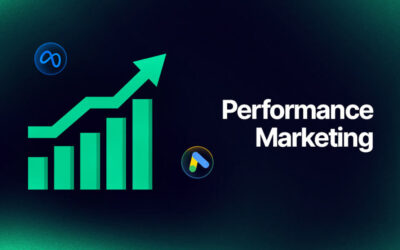Search engine optimization (SEO) is vital for supporting your business. A good online strategy will not only increase the number of visitors to your site but will also increase your visibility, gain a competitive advantage in the market, and grow your reputation. With many key performance indicators (KPIs) to keep track of, it can be difficult to determine which metrics are most important. Here, we’ve compiled a list of the 10 most important SEO KPIs your business should track.
1. Keyword Rankings
Keyword rankings are vital to visibility. To determine your ranking, search for words and phrases related to your business and see where your page is displayed on the search engine results page (SERP). If you’re ranked lower than your business desires, it’s a good indicator that it’s time to create a new SEO strategy.
2. Indexed Pages
To show up on SERPs, pages must be crawled and indexed by search engines. These “crawlers” will store information such as keywords, tags, and text on the search engine’s database as an index. When a user searches for a relevant phrase or word, the engine will use that index to determine your site’s rank in results.
3. Page Load Speeds
Faster-loading websites are more likely to attract and retain users. In addition, your page load speeds will also impact your ranking on SERPs. Several factors can affect your page’s ability to load, such as redirects, large images or media, the total number of visitors, server response times, and code quality. Google offers a free tool, PageSpeed Insights, to track your website’s speed.
4. Organic Traffic Sessions (Clickthrough Rates)
Organic traffic is crucial to your site’s visibility. If a user finds your website by searching for your brand or a related keyword on a search engine, they are considered organic. In contrast, paid traffic finds your website through ads or sponsored links. Also known as a clickthrough rate (CTR), many organic sessions indicate that users find your meta information on SERPs useful and relevant. However, the quality of those sessions is important, too (more on that next).
5. Traffic Conversion Rates
You may be getting a high volume of organic traffic, but are visitors engaging with your products and content? Conversions are some of the best measures of your SEO strategy’s efficacy and whether your content reaches its targeted audience. A “conversion” refers to a tracked event on your website in which a visitor makes a desired action, such as:
- Making a purchase.
- Registering for an event or webinar.
- Downloading content.
- Engaging on social media, such as a follow or a like.
Conversion rates can also provide context on how effective your website’s layout is, such as the placement of your calls-to-action.
6. Length of Visits and Sessions
In addition to conversion rates, the length of visitor sessions denotes the efficacy of your content. If you have visitors who find your blogs and then click and read through several more, those total actions, or a “session,” give you a good indicator that users think your content is helpful. Even if they don’t immediately convert, sessions still increase your site’s visibility.
7. Bounce Rates
On the other end of the spectrum from sessions are bounces. When a user bounces, they arrive at your site but do not interact with anything on your site or travel to any other pages. Also known as single-page sessions, these rates can indicate how keyword-relevant or easy to navigate your website is.
8. Cost Per Click (CPC)
If you’re using pay-per-click (PPC) campaigns, then you need to understand your CPC to understand the cost-effectiveness of your campaigns. The CPC is the total cost of your campaign divided by the number of clicks based on the amount of the bid you’ve placed on a keyword. Your organization pays whenever a user clicks on your site because the search engine suggests your page via the keyword bid. If you spend a lot of money on each bid with few visits, it may be time to bid on other keywords. However, even if you’re spending a lot of money per click, the total cost per acquisition (CPA) could offset this.
9. Cost Per Acquisition (CPA)
The total cost per acquisition (CPA) indicates how cost-effective your strategy is in gaining conversions. CPA analyzes the total cost of the digital marketing strategy and divides it by the value of the user’s spend. If you’re a business with high-value products or services, you can justify a higher spend because it will be offset by the lifetime value of a customer’s purchases.
10. Overall Revenue
Regardless of your CPA or CPC metrics, your business’s overall revenue from SEO is integral to its success. Ensure that any SEO project you undertake supports your overall business objectives and financial bottom line. Your total revenue will also determine whether you can afford paid advertising or whether it’s time to work with an agency to improve the return on investment.
Get Started with TenStrat
Partnering with an SEO agency can be a significant differentiator for your business. TenStrat is a Performance Marketing agency passionate about driving rapid growth through a data-driven approach. With over 25 years of combined Digital Marketing experience, we bring a wealth of knowledge and expertise working with start-ups to Fortune 500s. We trust in data and analytics to help us hypothesize, prioritize, and test innovative growth strategies. Want to learn more? Contact us today!


